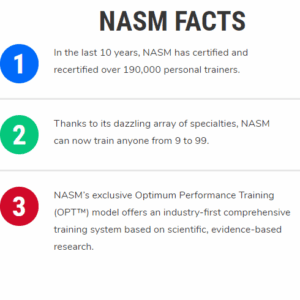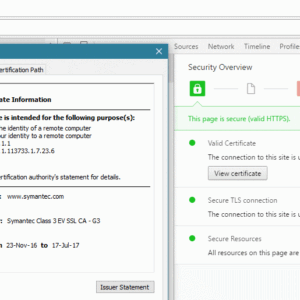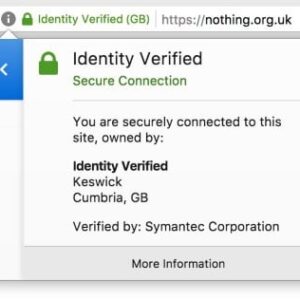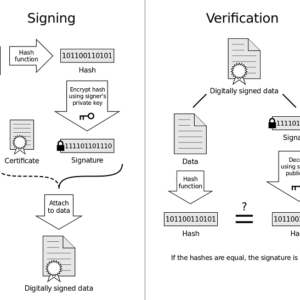The credential signifies a level of demonstrated knowledge and competency in the field of human resource management, specifically focusing on strategies and policies that align with organizational goals. Earning this distinction typically involves meeting certain educational or experiential criteria and successfully passing a comprehensive examination. Individuals holding this verification often possess expertise in areas such as talent acquisition, compensation and benefits, employee relations, and organizational development.
Acquiring this validation enhances professional credibility and marketability within the human resources sector. It demonstrates a commitment to upholding industry standards and best practices, increasing the individual’s value to employers. Historically, the development of standardized evaluation processes in HR has aimed to ensure a consistent level of expertise across the profession, contributing to improved organizational performance and employee well-being. The presence of verifiable expertise aids in mitigating risk and promoting legal compliance within businesses.
The ensuing sections will delve into the specific requirements for obtaining this professional benchmark, explore the content domains covered in the assessment process, and outline strategies for effective preparation to ensure success. Furthermore, consideration will be given to the ongoing professional development necessary to maintain an active status.
1. Eligibility Criteria
The prerequisites for candidacy in a certification program establish a baseline of professional experience and/or educational attainment deemed necessary for successful comprehension and application of the validated competencies. Adherence to these prescribed requirements is paramount; failure to meet these stipulations will preclude participation in the examination process.
-
Minimum Years of Experience
A specified duration of professional engagement in a relevant human resources role is frequently mandated. This experiential benchmark ensures candidates have encountered practical scenarios and possess applied understanding beyond theoretical concepts. The precise number of required years typically varies based on the specific designation and the overall experience level it aims to represent. For instance, a senior-level designation may demand a significantly greater number of years in comparison to an entry-level offering. Documented verification of employment history is generally required during the application process.
Suggested read: Peptide Therapy Certification: What Every Healthcare Professional Needs to Know in 2025
-
Educational Qualifications
Possession of a relevant academic degree, such as a bachelor’s or master’s in human resources, business administration, or a related field, often constitutes a key requirement. The focus on formal education ensures a foundational understanding of core HR principles and practices. In some instances, an equivalent combination of education and experience may be considered. For instance, applicants lacking a directly relevant degree may compensate with additional years of pertinent professional experience. Accreditation of the awarding institution is typically a critical factor in assessing the validity of educational credentials.
-
Specific Functional Experience
Certain programs may stipulate experience within particular HR functional areas, such as talent acquisition, compensation and benefits, or employee relations. This requirement guarantees exposure to specialized facets of the HR domain, facilitating a more nuanced understanding of the integrated role of the designation. Examples of this type of experience include having served as a recruiter, compensation analyst, or employee relations specialist. Demonstrating proficiency in these targeted areas necessitates detailing specific responsibilities and accomplishments within the application.
-
Adherence to Ethical Standards
Candidates are frequently required to affirm adherence to a professional code of ethics. This commitment underscores the importance of integrity and ethical conduct within the human resources profession. Ethical lapses, substantiated complaints, or other instances of misconduct may disqualify applicants or result in revocation of the credential. Such ethical requirements reinforce public trust and uphold the credibility of the designated individuals.
Collectively, these stipulations function to create a cohort of candidates possessing a requisite level of knowledge, experience, and ethical grounding. This approach contributes to the overall integrity and value proposition of the credential, signaling a commitment to excellence within the HR landscape.
2. Exam Domains
The content areas covered in the assessment for this credential are designed to evaluate a candidate’s proficiency across the spectrum of human resource management responsibilities. These domains are not arbitrary; rather, they are derived from a comprehensive job analysis that identifies the critical knowledge, skills, and abilities necessary for effective performance in strategic HR roles. Success on the examination hinges on a thorough understanding of these prescribed domains.
Suggested read: SPAB Certification: Everything You Need to Know About School Pupil Activity Bus Certification in California
-
Strategic HR Management
This area encompasses the candidate’s understanding of how HR functions align with and support the overall organizational strategy. It requires knowledge of strategic planning, organizational development, change management, and performance management systems. For instance, a question might require analyzing how a proposed HR initiative contributes to achieving a company’s market share goals. Failure to adequately address this domain suggests a limited grasp of the strategic importance of HR.
-
Talent Acquisition and Management
This encompasses the processes involved in attracting, recruiting, selecting, and onboarding new employees, as well as developing and retaining existing talent. Content within this sphere might include topics such as sourcing strategies, interviewing techniques, legal compliance in hiring, succession planning, and employee development programs. Examples may be the design of a comprehensive recruiting strategy for a highly specialized role or managing employee performance. Inadequate understanding of talent acquisition and management indicates a weakness in the area most related to attracting human capital.
-
Compensation and Benefits
This facet covers the design, implementation, and administration of employee compensation and benefits programs, ensuring internal equity and external competitiveness. Content addresses job evaluation methods, salary surveys, incentive plans, health and welfare benefits, retirement plans, and legal compliance related to compensation and benefits. For example, there may be a case study involving evaluating the cost-effectiveness of offering a new health insurance plan. Deficiencies in this knowledge area reveal a failure to adequately oversee employee remuneration.
-
Risk Management and Compliance
This area assesses the candidate’s awareness of legal and regulatory requirements impacting HR practices. It covers employment law, safety and health regulations, data privacy, and risk mitigation strategies. Candidates may be asked to identify potential legal violations in a hypothetical workplace scenario or to recommend preventative measures to minimize liability. For instance, a question may test the candidate’s knowledge of the Family and Medical Leave Act (FMLA) or the Americans with Disabilities Act (ADA). Inability to identify and manage HR-related risks undermines the legitimacy of the candidate.
Suggested read: Is NASM Certification Worth It? An Honest Look at Costs, Benefits, and Career ROI
These four domains, though distinct, are intrinsically interconnected. A holistic understanding across these areas is essential for demonstrating the competence necessary to earn professional recognition and make substantive contributions to organizational effectiveness.
3. Preparation Resources
Adequate preparation is inextricably linked to successful attainment of the human resource management validation. The complexity and breadth of the examination necessitate strategic utilization of available preparation resources. The absence of proper preparation invariably leads to increased risk of failure, extending the timeline and incurring additional costs associated with retaking the exam. Effective study methods are vital to demonstrating expertise.
Various resources are designed to assist candidates in mastering the content domains. Official study guides, practice exams, and online courses are commonly offered by certifying bodies or recognized training providers. Real-life examples demonstrate the practical significance of focused preparation: Candidates who dedicate sufficient time to studying using recommended materials consistently achieve higher pass rates. Furthermore, participation in study groups or mentorship programs can provide valuable insights and support, mitigating the challenges of self-directed learning. Individuals report test anxiety can be overcome through repetition of test questions.
The availability and effective use of appropriate preparatory materials correlate directly with candidate success. A strategic approach to exam preparation, incorporating a diverse array of resources and consistent self-assessment, significantly enhances the likelihood of earning the credential. Therefore, investment in high-quality preparation resources constitutes a critical component of achieving professional validation, reflecting both dedication and aptitude.
4. Recertification Process
The recertification process is an integral component of maintaining a valid and current status, reflecting ongoing competence in the human resource management field. It ensures that holders of this validation remain abreast of evolving industry trends, regulatory changes, and best practices. Failure to engage in continuous professional development and complete the recertification requirements results in the lapse of the credential, rendering the individual’s expertise officially unrecognized. This process directly connects to the significance of HR experts holding credentials remaining current in their knowledge.
Recertification typically involves accumulating a specified number of professional development credits (PDCs) within a defined period, often two to three years. These credits can be earned through various activities, such as attending HR conferences, participating in relevant training programs, completing continuing education courses, or contributing to the profession through volunteer work or publications. For example, an HR manager implementing a new compensation strategy based on updated regulatory guidance would likely earn PDCs for that activity. Another example would be attending webinars focused on new employment laws. Documenting these professional activities and submitting them for approval is essential for fulfilling recertification requirements.
In summary, the recertification process is not merely a formality but a critical mechanism for safeguarding the value and integrity of the certification. It compels certified individuals to proactively engage in continuous learning, thereby ensuring they possess the knowledge and skills necessary to navigate the dynamic landscape of human resources. By adhering to recertification mandates, holders of this designation demonstrate a sustained commitment to professional excellence, enhancing their credibility and contributing to the overall advancement of the HR profession.
5. Career Advancement
The attainment of a credential often serves as a catalyst for professional progression within the human resources domain. Possessing this validation can directly correlate with increased opportunities for promotions, expanded responsibilities, and enhanced earning potential. The acquisition demonstrates a commitment to professional development and mastery of core HR competencies, signaling to employers a candidate’s readiness for advanced roles.
Suggested read: A4M Peptide Certification: Everything Practitioners Need to Know Before Enrolling
For example, an HR generalist seeking to transition into a more strategic HR business partner role might find that obtaining this validation significantly strengthens their candidacy. Similarly, an HR specialist aiming to move into a management position often benefits from the credibility and recognition associated with holding the designation. Real-world applications demonstrate that individuals who hold this validation frequently experience accelerated career trajectories compared to their non-certified counterparts, often securing positions with greater autonomy and decision-making authority. Employers, in turn, often prioritize candidates with proven expertise, recognizing the value they bring to the organization’s human capital strategies.
In summary, holding this industry validation is a significant factor in career trajectory. The credential’s focus on strategic alignment, talent management, compensation, and compliance equips professionals with the essential skills and knowledge required to excel in advanced HR roles. While other factors contribute to career advancement, such as experience and leadership skills, acquiring this validation consistently proves to be a tangible differentiator, bolstering professional credibility and opening doors to expanded career opportunities within the dynamic human resources field. The value of continuous learning in a regulated industry is demonstrated by achieving validation of this type.
6. Industry Recognition
Industry recognition of human resource certifications significantly impacts the perceived value and utility of those credentials. The degree to which an accreditation is acknowledged and respected within the professional community dictates its influence on career advancement, organizational hiring practices, and the overall credibility of certified individuals. A widely recognized validation signifies a benchmark of competence, promoting confidence among employers and clients alike.
-
Employer Preference
Organizations frequently prioritize candidates holding certifications that are esteemed within their specific industry. This preference arises from the assurance that certified individuals possess a standardized level of knowledge and skills aligned with industry best practices. For instance, a company seeking an HR Director may specifically require applicants to hold a recognized accreditation, reflecting the organization’s commitment to quality and compliance. This practice directly impacts hiring decisions and promotional opportunities.
-
Standard of Competence
Industry acknowledgement establishes a validation as a reliable indicator of professional competence. It confirms that certified individuals have undergone rigorous assessment and demonstrated proficiency in core HR domains. This standardization allows employers to confidently gauge the capabilities of potential hires, reducing the need for extensive individual assessment. The presence of this validation serves as an external validation of an individuals capabilities.
-
Professional Credibility
Suggested read: Why ISO 9000 Certification Consultants Are Essential for Business Growth
Holding a recognized certification enhances an HR professional’s credibility within the industry. It signals a commitment to ongoing professional development and adherence to ethical standards. This enhanced credibility can lead to increased opportunities for consulting engagements, speaking engagements, and leadership roles within professional organizations. Participation in ongoing professional development strengthens one’s expertise.
-
Benchmarking and Best Practices
Industry-recognized certifications often align with established benchmarks and best practices in human resource management. By obtaining and maintaining these credentials, professionals stay current with evolving industry standards and regulatory requirements. This ensures that certified individuals are equipped to implement effective and compliant HR strategies within their organizations. Adherence to best practices can mitigate risk and improve organizational performance.
The facets outlined above underscore the critical interplay between industry validation and an HR professional’s career trajectory. When it is widely recognized and respected, its value is significantly amplified, enhancing career prospects, bolstering credibility, and promoting adherence to industry best practices. The absence of industry acknowledgement diminishes the credential’s impact and limits its practical utility in the competitive HR landscape.
Frequently Asked Questions About CHRM Certification
The following addresses prevalent inquiries regarding professional validation in human resources, intended to clarify common concerns and provide comprehensive information.
Question 1: What are the primary benefits of achieving CHRM certification?
Suggested read: ISO 27001 Certification Consultants: Your Strategic Partner for Information Security Excellence
Achieving this certification enhances professional credibility, demonstrates mastery of core HR competencies, and increases career advancement opportunities. It signals a commitment to industry standards and best practices, valued by employers seeking qualified HR professionals.
Question 2: What are the eligibility requirements for CHRM certification?
Eligibility typically includes a combination of relevant professional experience in human resources and educational qualifications, such as a bachelor’s degree. Specific requirements may vary depending on the certifying organization; however, adherence to a professional code of ethics is universally expected.
Question 3: What subject areas are assessed in the CHRM certification examination?
The assessment covers strategic HR management, talent acquisition and management, compensation and benefits, and risk management and compliance. A holistic understanding of these interlinked domains is crucial for successful completion of the exam.
Question 4: How can prospective candidates effectively prepare for the CHRM certification examination?
Suggested read: CIT Certificate: Everything You Need to Know About Corporate Income Tax Certification in 2026
Effective preparation involves utilizing official study guides, engaging in practice examinations, and participating in relevant training programs or study groups. A strategic approach to studying, coupled with consistent self-assessment, significantly enhances the likelihood of success.
Question 5: Is recertification required to maintain CHRM certification, and if so, what does it entail?
Yes, recertification is required to maintain an active certification status. It involves accumulating professional development credits through activities such as attending conferences, completing continuing education, and contributing to the HR profession. This ongoing commitment ensures continued competence.
Question 6: How does industry recognition impact the value of CHRM certification?
Widespread industry recognition significantly amplifies the value of certification, influencing employer hiring preferences, establishing a standard of competence, enhancing professional credibility, and promoting adherence to best practices. The absence of recognition diminishes its impact.
Suggested read: CPT Certification: What It Is & Why It Matters
Achieving and maintaining a professional credential in human resources represents a significant investment in career development and contributes to upholding standards of excellence within the profession.
The subsequent sections will delve into specific strategies for leveraging certification to achieve professional growth and contribute to organizational success.
Tips for Achieving CHRM Certification
Successful attainment of this validation requires a strategic and dedicated approach. The ensuing points offer guidance for maximizing preparation and performance.
Tip 1: Initiate Preparation Early. Commence the study process well in advance of the examination date. Procrastination increases stress and reduces the time available for comprehensive review of core competencies.
Tip 2: Focus on Foundational Concepts. Prioritize the mastery of fundamental principles within each exam domain. A solid grasp of core concepts facilitates a deeper understanding of more complex applications. Do not skip the essential background material.
Tip 3: Utilize Official Study Materials. Leverage study guides and practice exams provided by the certifying body. These resources are specifically designed to align with the examination content and format.
Tip 4: Practice Time Management. Allocate sufficient time to each question during practice examinations. Develop a pacing strategy to ensure all sections are completed within the allotted timeframe. Test yourself using an actual timer.
Tip 5: Identify Areas for Improvement. Thoroughly review performance on practice examinations to pinpoint areas of weakness. Dedicate additional study time to addressing these deficiencies.
Suggested read: Get Wetland Delineation Certification: Your Path
Tip 6: Simulate Examination Conditions. Replicate the testing environment during practice examinations. Minimize distractions and adhere to the time constraints to acclimate to the pressure of the actual test.
Tip 7: Review Relevant Legal Updates. Stay abreast of recent legislative and regulatory changes impacting human resources. Examination content frequently reflects current legal requirements.
Tip 8: Seek Professional Guidance. Consider joining a study group or seeking mentorship from experienced HR professionals. Collaborative learning can provide valuable insights and support.
Effective preparation, coupled with a strategic approach to the examination, significantly enhances the likelihood of achieving the desired validation. A proactive and dedicated mindset is crucial.
The final section will summarize the key benefits and implications of obtaining professional validation in human resources.
Conclusion
This exploration has outlined the essential elements of “chrm certification”, encompassing eligibility, examination domains, preparation strategies, recertification, career advancement, and industry recognition. The attainment of this credential signifies demonstrated competence and a commitment to upholding professional standards within human resource management. It is a marker of verifiable skill applicable in many business environments.
Therefore, pursuit of “chrm certification” represents a strategic investment in professional development. Its acquisition contributes not only to individual career progression but also to the overall advancement of effective and ethical practices within the field of human resources. The value of a validated profession remains steady. The future HR professionals should consider achieving this certification.





